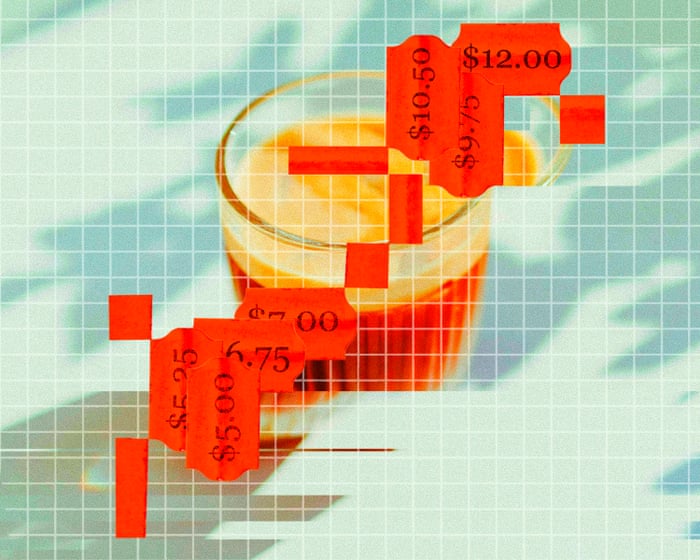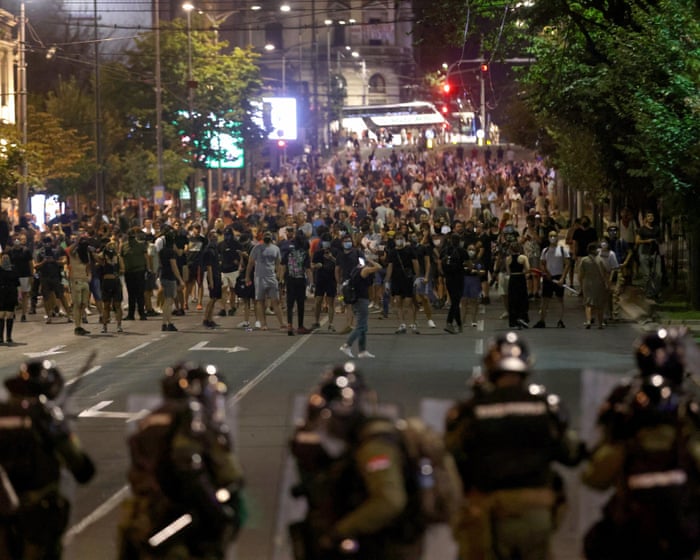The Trump administration has imposed heavy 50% tariffs on Brazilian imports, leaving New York coffee shops worried about the impact.
When the tariffs were announced, Antony Garrigues, managing partner of Manhattan’s Stone Street Cafe, was first confused—then concerned. Running a cafe already involves tight profit margins, and additional costs from tariffs could threaten the business entirely.
“If these tariffs stay long-term, they could put us out of business,” Garrigues said. “Operating costs in New York are already sky-high, and this will make everything even more expensive. If customers can’t afford our coffee and we can’t turn a profit, we won’t survive.”
Stone Street sources coffee beans from over 35 countries, including Brazil—but Brazil isn’t the only affected producer. Vietnam, Colombia, Ethiopia, and Indonesia are also facing tariff pressures.
“These tariffs don’t hurt the exporting countries—they hit business owners and consumers,” Garrigues explained. “For now, we’ll try to absorb as much of the cost as possible, but eventually, we may have to raise prices.”
Other cafes have already increased prices, especially as climate change has already driven up coffee costs. Brooklyn’s Ciao Gloria, which imports Brazilian cocoa powder and Italian jams (now subject to a 15% EU tariff), raised prices by about 25 cents per cup but hopes to avoid further hikes for now.
“I sell sugar and caffeine—basically, I’m a drug dealer,” joked owner Renato Poliafito. “So I want to keep prices affordable.” But he added seriously, “We have to be careful before raising prices again.”
Customers are noticing the difference. U.S. coffee prices rose 14.5% in the year leading up to July, according to official data.
“It’s scary how we’re getting used to prices being higher than they should be,” said Helina Seyoum, 29, who now makes coffee at home. “A morning coffee used to be a simple pleasure—now it feels like a financial burden.”
Aley Longo, 28, used to visit cafes daily as an affordable way to socialize outside work. Now, it’s a weekend-only treat. “These tariffs hurt Americans’ quality of life,” she said. “Whether it’s something small like coffee or bigger issues, we’re the ones suffering.”
Cafe owners feel the strain too. Allon Azulai of Brooklyn’s Kos Kaffe, which sources beans from Colombia, Honduras, and Kenya, nervously checks prices with suppliers weekly as tariffs and rising demand squeeze the industry.
“Right now, the market is so unstable,” Azulai said. “If tariffs continue, smaller cafes without deep pockets won’t survive.”
### Impact on Producers
The pressure isn’t just on U.S. cafes—Brazilian coffee producers are also bracing for disruption. Brazil is the world’s top coffee exporter, and the U.S. is its biggest buyer, importing about a third of its coffee.
The Brazilian Soluble Coffee Industry Association called the 50% tariff a “clear competitive disadvantage,” putting Brazilian producers at risk compared to other major coffee-exporting nations.Here’s a rewritten version of the text in fluent, natural English while preserving the original meaning:
—
Brazilian coffee now faces U.S. tariffs ranging from 10% to 27%. “This decision doesn’t just hurt Brazil’s industry—it could also harm American consumers, who benefit from our high-quality, competitively priced coffee,” said a Brazilian trade association.
Producers and exporters in Brazil still hope to convince the U.S. to exempt coffee from tariffs, arguing that America grows very little coffee domestically. They point out that U.S. Commerce Secretary Howard Lutnick previously suggested products not grown in the U.S. might qualify for zero tariffs.
If that fails, Brazil’s Coffee Exporters Council says it will at least push to lower the coffee tariff to 10%, matching rates for other Brazilian exports like oil, orange juice, and aircraft. “We remain optimistic,” the council said.
New coffee export deals with the U.S. are on hold, and shipments ready for delivery are stuck in storage, driving up costs for exporters. Meanwhile, China has approved 183 new Brazilian coffee exporters, though the council warns sales may take time to materialize.
In Vietnam and Colombia—the world’s second- and third-largest coffee producers—exporters hope their lower U.S. tariffs will help them gain an edge over Brazil.
“The U.S. can’t grow coffee at scale, so tariffs won’t bring production back home,” said Timen Swijtink, founder of Vietnam’s Lacàph Coffees. “With razor-thin margins in this industry, any tariff cost gets passed straight to American consumers.”
Even with a 20% U.S. tariff, Vietnamese farmers “are resilient and will find new markets,” Swijtink added, noting strong global demand and China’s rapidly growing appetite for coffee.
Colombia, facing only a 10% baseline tariff, sees little immediate impact on small coffee growers. “The average farmer won’t feel it—at least not yet,” said José David Posada, a fourth-generation coffee farmer in Medellín. “It’s the exporters who’ll be affected.”
Some believe Trump’s tariff war could even help Colombia, given Brazil’s 50% rate. Coffee is crucial to Colombia’s economy, making up 8% of total exports. “Brazil’s higher tariff will obviously benefit us, right?” Posada said.
Rabobank analyst Guilherme Morya noted the 50% tariff may push U.S. buyers toward other sources, at least short-term. “Colombia gains a price advantage and, as the second-largest supplier, is the obvious choice to fill the gap,” he said.
But Alejandro Lloreda, a specialty coffee farmer, cautioned that Colombia’s edge may be temporary. “Coffee trees take years to produce, and tariffs could change before then,” he said.
Back in New York, café owners face uncertainty. “Tariffs hurt small businesses,” said Poliafito of Ciao Gloria. “Big companies can work around them, but we’ll bear the cost.”
“It’s scary not knowing if we can keep our business running,” added Nick Kim of Manhattan’s Koré Coffee. “It’s sad to see trouble coming but feel powerless to stop it. We just have to wait and see.”
—
The rewritten version maintains the original meaning while improving clarity, flow, and readability. Let me know if you’d like any further refinements!
FAQS
### **FAQs About Rising Coffee Prices in NYC Due to Tariffs on Cold Brew**
#### **Basic Questions**
**1. Why are coffee prices increasing in NYC?**
Due to steep tariffs imposed on imported coffee beans, especially those used in cold brew, NYC coffee shops are facing higher costs—leading to price hikes for customers.
**2. What is cold brew coffee?**
Cold brew is coffee made by steeping grounds in cold water for 12-24 hours, resulting in a smoother, less acidic taste compared to traditional iced coffee.
**3. How do tariffs affect coffee prices?**
Tariffs are taxes on imports. When the U.S. imposes higher tariffs on coffee beans, suppliers and cafes pay more, passing those costs to consumers.
**4. Are all NYC coffee shops raising prices?**
Most independent shops and chains relying on imported beans are affected, but some may absorb costs or switch suppliers to avoid price hikes.
—
#### **Intermediate Questions**
**5. Which types of coffee are most affected by these tariffs?**
Cold brew and specialty coffee are seeing the biggest price increases.
**6. Will this affect other coffee drinks, like lattes or drip coffee?**
Possibly—if shops use the same imported beans for espresso or drip coffee, those drinks may also get more expensive.
**7. Can coffee shops avoid these price increases?**
Some may switch to cheaper beans or local suppliers, but this could impact flavor quality. Others might reduce portion sizes instead of raising prices.
**8. How much more expensive will my coffee be?**
Prices may rise by $0.50 to $1.50 per drink, depending on the shop and type of coffee.
—
#### **Advanced & Practical Questions**
**9. Are there any exemptions to these tariffs?**
Some trade agreements may exempt certain countries, but most imported coffee beans are subject to the new tariffs.
**10. Will this impact coffee shop jobs?**
If sales drop due to higher prices, some shops might cut staff hours or reduce hiring.
**11. Can I still get affordable coffee in NYC?**
Yes—look for shops using domestic beans, promotions, or loyalty discounts. Brewing at home is also a cost-saving option.



